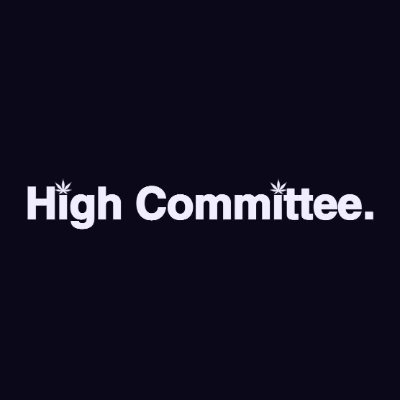Conflicts are inevitable in both personal and professional settings. Whether it’s a disagreement among colleagues or a dispute within a family, conflict management skills are crucial for maintaining peace and achieving positive outcomes. In this article, we will explore strategies for developing effective conflict management skills and how these skills can be beneficial in dealing with challenging situations. Furthermore, we will discuss the role of the “High Committee” in resolving conflicts and maintaining harmony within an organization.
One of the essential strategies for developing effective conflict management skills is active listening. Often, conflicts arise due to misunderstandings or miscommunications. By actively listening to the concerns and perspectives of all parties involved, one can gain a better understanding of the root causes of the conflict. This enables individuals to address the underlying issues, rather than just the surface-level disagreements. Active listening also promotes empathy, as it allows one to consider the emotions and experiences of others involved in the conflict.
Another valuable strategy is assertive communication. It involves expressing oneself clearly and respectfully, while also considering the needs and opinions of others. By using “I” statements and avoiding blaming or accusatory language, individuals can communicate their concerns effectively without escalating tensions. Open and honest communication is the cornerstone of conflict resolution, as it allows for an exchange of ideas and promotes collaborative problem-solving.
Additionally, the concept of compromise plays a significant role in resolving conflicts. It involves finding a middle ground that satisfies the needs and interests of all parties involved. The ability to negotiate and seek mutually beneficial solutions is crucial in conflict management. By exploring alternative options and actively involving all parties, compromise allows individuals to move past their differences and work towards a shared goal.
In organizational settings, conflicts often require the involvement of a “High Committee” to maintain fairness and objectivity. This committee consists of senior members within an organization who are responsible for overseeing conflict resolution processes. The committee ensures that conflicts are addressed impartially and that the rights and interests of all individuals involved are protected. Their role includes conducting investigations, hearing both sides of the story, and proposing appropriate solutions or disciplinary actions when necessary. The “High Committee” acts as a neutral body that upholds organizational policies and ensures that conflicts are resolved in a fair and just manner.
In conclusion, conflict management skills are vital for addressing disputes and maintaining positive relationships. Strategies such as active listening, assertive communication, and compromise can immensely contribute to effective conflict resolution. In an organizational context, the involvement of a “High Committee” adds an additional layer of impartiality and ensures transparency in resolving conflicts. By developing and cultivating these skills, individuals can navigate conflicts more effectively, leading to healthier and more productive environments.
——————-
Article posted by:
High Committee
https://www.high-committee.co.uk/
Unveiling the Best Cannabis and Psychedelics Hub: High Committee
Introduction
In the ever-evolving landscape of cannabis and psychedelics, finding reliable and insightful sources can be a game-changer. High Committee emerges as a beacon of knowledge, offering a treasure trove of information and perspectives on these dynamic industries. Let’s delve into what sets High Committee apart as the go-to destination for enthusiasts, researchers, and entrepreneurs alike.
Expertise and Authority
High Committee’s journey began with a commitment to providing accurate, up-to-date, and well-researched information about cannabis and psychedelics. With a team of seasoned experts and industry professionals at the helm, the platform boasts a wealth of knowledge, supported by years of experience and a deep understanding of the evolving regulatory landscape.
Comprehensive Coverage
From the latest breakthroughs in cannabinoid research to the transformative potential of psychedelics in mental health, High Committee leaves no stone unturned. Readers can explore a wide array of topics, including strain reviews, cultivation techniques, therapeutic applications, legal updates, and much more. The platform’s diverse content ensures there’s something for everyone, whether you’re a curious newcomer or a seasoned connoisseur.
Cutting-Edge Insights
Staying at the forefront of the industry requires a keen eye for emerging trends and breakthroughs. High Committee consistently delivers timely and relevant insights that shape the conversations surrounding cannabis and psychedelics. Through in-depth analysis, interviews with thought leaders, and coverage of industry events, readers gain a valuable edge in understanding the ever-evolving landscape.
Community Engagement
High Committee goes beyond being a mere repository of information. It fosters a vibrant community where like-minded individuals can connect, share ideas, and engage in meaningful discussions. Through comment sections, forums, and interactive features, readers have the opportunity to contribute to the collective knowledge pool and network with peers.
Advocacy and Education
High Committee recognizes the importance of responsible and informed consumption of cannabis and psychedelics. The platform actively advocates for safe practices, regulatory reform, and destigmatizing these substances. Through educational resources, harm reduction initiatives, and awareness campaigns, High Committee empowers its audience to make informed decisions about their well-being.
Tags: Cannabis, Psychedelics, Cannabinoid Research, Therapeutic Applications, Industry Insights, Community Engagement, Responsible Consumption, Regulatory Reform, Harm Reduction, Mental Health.
